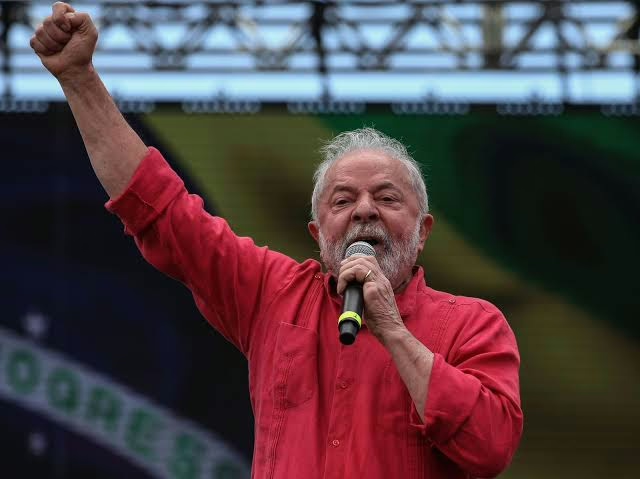Brasília, July 18 — In a sharp escalation of rhetoric between the leaders of Brazil and the United States, Brazilian President Luiz Inácio Lula da Silva on Thursday declared that he would not accept any directives from foreign leaders, pointedly referring to former U.S. President Donald Trump. Lula denounced Washington’s proposed 50% tariff on Brazilian goods as “unacceptable blackmail,” deepening a transcontinental trade rift.
Speaking at two separate events, Lula strongly defended Brazil’s autonomy in the face of what he described as external pressure. “No foreigner is going to give orders to this president,” Lula said in a public address, using the colloquial term “gringo” – commonly used in Brazil for foreigners, without the derogatory undertones found elsewhere in Latin America.
The statement came days after the United States unveiled a steep tariff plan, scheduled to take effect in August, citing alleged trade unfairness and the Lula administration’s treatment of former Brazilian President Jair Bolsonaro. The U.S. announcement, made under Trump’s renewed presidential campaign rhetoric, has stirred diplomatic concern in Brasília and prompted widespread condemnation from Brazilian officials.
Lula, currently serving his third non-consecutive term as president of Latin America’s largest economy, dismissed the justification behind the move and framed it as a direct affront to Brazil’s institutions. In a televised evening address to the nation, he reiterated that his government had submitted a trade proposal to the United States in May, but had received no formal response—only a retaliatory measure.
> “We expected a response, and what we received was unacceptable blackmail, in the form of threats to Brazilian institutions and false information about trade between Brazil and the United States,” Lula said during the nearly five-minute broadcast.
While the U.S. attributed the tariffs to issues surrounding Bolsonaro and Brazil’s digital market policies, Lula remained firm on proceeding with taxation and regulation of major U.S.-based technology companies, which he accused of spreading fake news under the guise of freedom of expression. Addressing a gathering of student activists in Goiás, he emphasized the need to curb the influence of foreign digital platforms that he believes contribute to online violence.
The Brazilian Foreign Ministry confirmed that retaliatory measures are being considered should negotiations with Washington fail. Trade officials are reportedly in ongoing discussions with industry groups likely to be impacted by the new tariff regime.
Brazil’s Foreign Minister Mauro Vieira, speaking to CNN Brasil, indicated that despite the friction, Lula remains open to diplomatic engagement. “If the circumstances are given, they will speak,” he said, referring to a potential future conversation between Lula and Trump, who have never met personally.
Lula’s hardline stance has drawn domestic attention. Following the announcement of the U.S. tariff last week, his approval ratings began to rebound, reflecting a rallying effect among Brazilians who view the dispute as a matter of national pride and sovereignty.
As both nations enter a delicate period of negotiations, Lula’s administration is signaling that it will not be strong-armed into trade concessions by foreign powers—particularly not during an election season in the U.S., where Trump continues to shape foreign policy narratives from the campaign trail.



